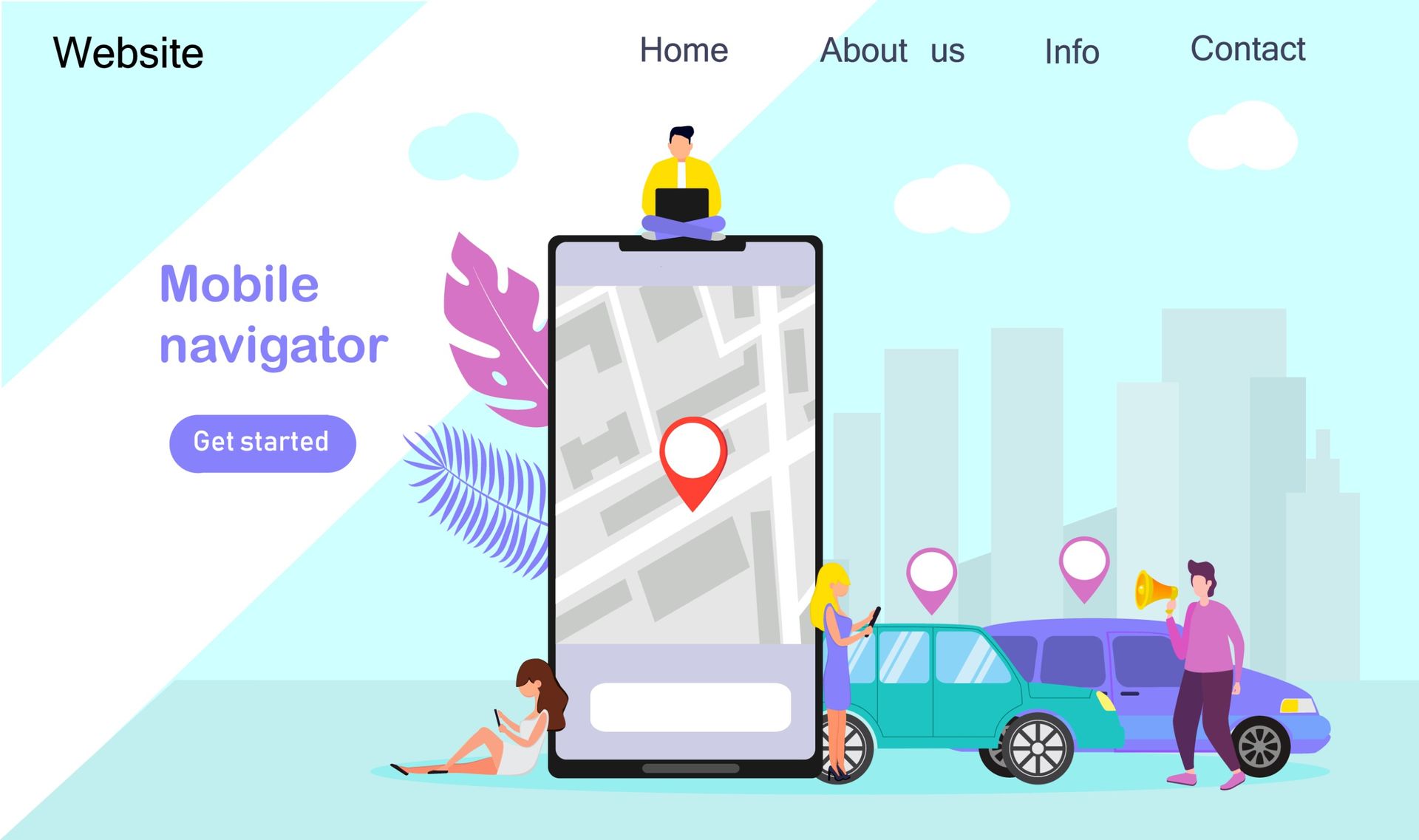The 4 Best Online Marketing Strategies for Businesses
Starting to market your business online can feel overwhelming, but it doesn't have to be. With the right strategies, you can reach more customers and grow your brand effectively.
This guide will walk you through nine of the best online marketing strategies. Whether you're new to digital marketing or looking to refine your approach, these tactics are designed to be straightforward and actionable.
Let’s explore the tools and techniques that can help your business thrive in the online world.
Search Engine Optimization (SEO) Best Practices
Search Engine Optimization is an essential marketing strategy that helps your website appear higher in search engine results. A higher rank means more visibility, leading to increased traffic and potentially more customers.
Key Elements of SEO
- Keyword Research: Identify trending keywords that are relevant to your business. Incorporate these keywords throughout your website content to attract search engine attention. Current trending keywords include "digital marketing tactics," "online business growth," and "SEO strategies."
- Quality Content: Create valuable, relevant, and engaging content for your audience. This could be in the form of blog posts, articles, or informative videos.
- Backlinks: High-quality backlinks from reputable websites enhance your site’s credibility and search engine ranking.
- Mobile Optimization: Make sure your website is mobile-friendly. A significant portion of users search on their mobile devices, and a smooth mobile experience can boost your SEO performance.
Incorporating these elements effectively can help increase your online presence, making it easier for potential customers to find you when searching for services you offer.
Content Marketing & Blogging
Content marketing and blogging are powerful strategies that can establish you as a thought leader in your industry and drive meaningful engagement with your audience.
Why Content Marketing Matters
Content marketing is all about creating valuable, relevant content to attract and engage your target audience. This can be done through blog posts, eBooks, infographics, and more. It positions your business as a trusted resource and can significantly boost your online visibility.
Benefits of Blogging
- Increased Traffic: Regularly updated blogs have more pages indexed by search engines, which can lead to higher traffic. Trending keywords such as "content creation," "digital marketing trends," and "business blogging" should be naturally integrated into your posts.
- Customer Engagement: Blogs provide a platform to communicate directly with your customers, addressing their pain points and offering solutions.
- Lead Generation: By offering valuable information, you can convert blog readers to leads through call-to-actions (CTAs) and subscription forms.
Best Practices for Blogging
- Identify Your Audience: Understand who your readers are and what they need. Tailor your content to answer their questions and solve their problems.
- Consistency is Key: Post regularly to build a loyal readership. Use a content calendar to plan and organize your publishing schedule.
- Utilize Visuals: Include images, videos, and infographics to make your content more engaging and easier to digest.
Tools to Enhance Blogging
- SEO Plugins: Tools like Yoast SEO can help optimize your blog posts for search engines.
- Content Management Systems (CMS): Platforms like WordPress make it easy to create, edit, and publish blog content.
- Analytics: Use tools like Google Analytics to track the performance of your blog and understand what content resonates with your audience.
By effectively integrating content marketing and blogging into your digital strategy, you can enhance your online presence and build a loyal customer base. The key is consistency, relevance, and value, which will ultimately help your business thrive in the online marketplace.
Social Media Engagement and Advertising
Harnessing the power of social media can significantly boost your business’s online presence and customer engagement. Social media platforms offer a dynamic way to reach and interact with your target audience.
Why Social Media Matters
Social media engagement goes beyond likes and shares—it's about creating meaningful connections with your audience. Here’s why it’s crucial:
- Brand Awareness: Regular updates and interactions on platforms like Facebook, Instagram, and LinkedIn can increase your brand’s visibility.
- Customer Loyalty: Engaging content and responsive customer service help build a loyal community of followers.
- Lead Generation: Social media ads can target specific demographics, delivering your message to potential customers who are most likely to be interested in what you offer.
Strategies for Effective Social Media Engagement
- Understand Your Audience: Knowing your audience’s preferences and habits allows you to tailor your content to their needs.
- Create Quality Content: Post content that is informative, entertaining, and visually appealing. Use trending keywords like "social media marketing," "engagement strategies," and "digital advertising" to attract a wider audience.
- Utilize Hashtags: Hashtags help increase the discoverability of your posts. Incorporate popular and relevant hashtags to broaden your reach.
- Engage with Your Audience: Respond to comments, answer questions, and engage in conversations. This shows that you value your audience and boost engagement.
Effective Social Media Advertising
Paid social media advertising can accelerate your reach and engagement. Here are some tips for successful advertising:
- Targeted Ads: Use the targeting options available on social media platforms to reach specific audiences based on demographics, interests, and behavior.
- Visually Engaging Ads: Create high-quality, visually appealing ads that capture attention quickly.
- Compelling Call-to-Actions (CTAs): Encourage users to take action with strong CTAs, such as “Sign Up Now,” “Learn More,” or “Shop Now.”
Tools for Social Media Management
- Scheduling Tools: Platforms like Hootsuite and Buffer can help you schedule posts and manage multiple social media accounts efficiently.
- Analytics Tools: Utilize tools such as Sprout Social or Google Analytics to track the performance of your social media campaigns and adjust your strategy accordingly.
Pay-Per-Click (PPC) Advertising
Delving into the realm of Pay-Per-Click (PPC) advertising can seem intimidating at first, but it offers precise control over your marketing spend and can deliver impressive results.
Why PPC Matters
PPC advertising is a model where advertisers pay a fee each time their ad is clicked. This allows your business to buy visits to your site, rather than earning them organically. Here’s why PPC is so powerful:
- Immediate Results: Unlike SEO, which can take months to show results, PPC campaigns can drive traffic to your site almost instantly.
- Targeted Reach: PPC platforms allow you to target specific demographics, interests, locations, and even the time of day your ads appear.
- Controlled Budget: You set your budget limits, ensuring you never spend more than you’re comfortable with.
Key Elements of a Successful PPC Campaign
- Keyword Selection: Choose keywords that are relevant to your business and have a high search volume. Trending keywords like "PPC advertising tips," "online ad strategy," and "digital market growth" should be considered.
- Compelling Ad Copy: Write concise, attention-grabbing ad copy that clearly communicates your value proposition and includes a strong call-to-action (CTA).
- Landing Page Optimization: Ensure the landing pages your ads link to are relevant, load quickly, and provide a seamless user experience.
Effective PPC Strategies
- Budget Management: Start with a small budget and adjust based on the performance of your campaign.
- A/B Testing: Experiment with different ad copies, headlines, and visuals to see what resonates best with your audience.
- Quality Score Improvement: Focus on improving your quality score by aligning your ad copy with your landing page content and ensuring a positive user experience.
Tools to Enhance PPC Campaigns
- Google Ads: Use Google Ads for keyword research, setting up your campaigns, and tracking their performance.
- SEMrush: This tool offers competitive analysis and insights to refine your PPC strategy.
- Google Analytics: Track your PPC campaign effectiveness and adjust based on data-driven insights.
Ready to elevate your online marketing game?
Whether it's optimizing your website for search engines, engaging with customers on social media, or creating compelling content, each tactic plays a crucial role in your overall marketing success.
Remember, the future of online marketing lies in continuous learning and adaptation. Stay informed about industry trends, experiment with new approaches, and always prioritize your audience's needs.
Get started with implementing these strategies today and watch your business grow.











